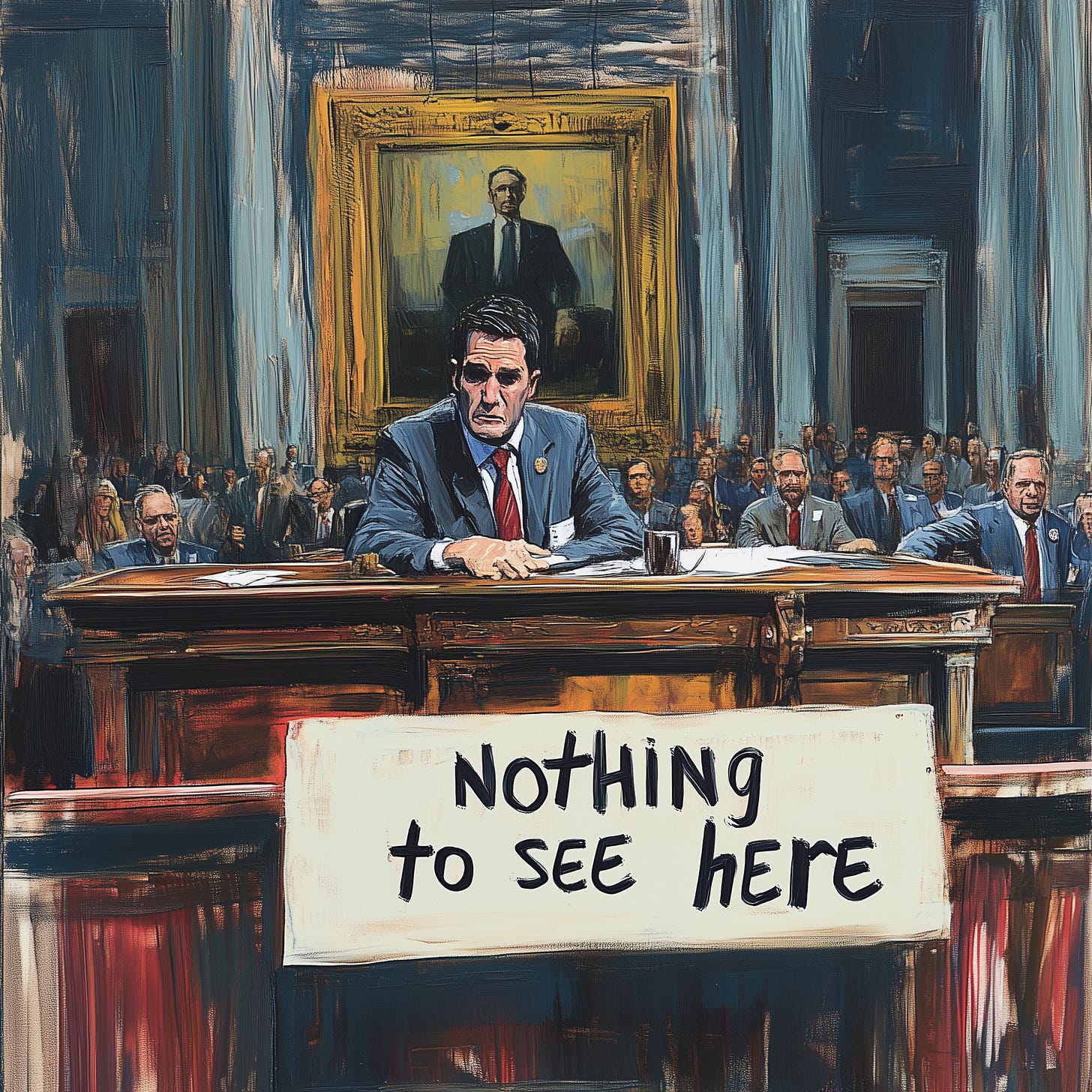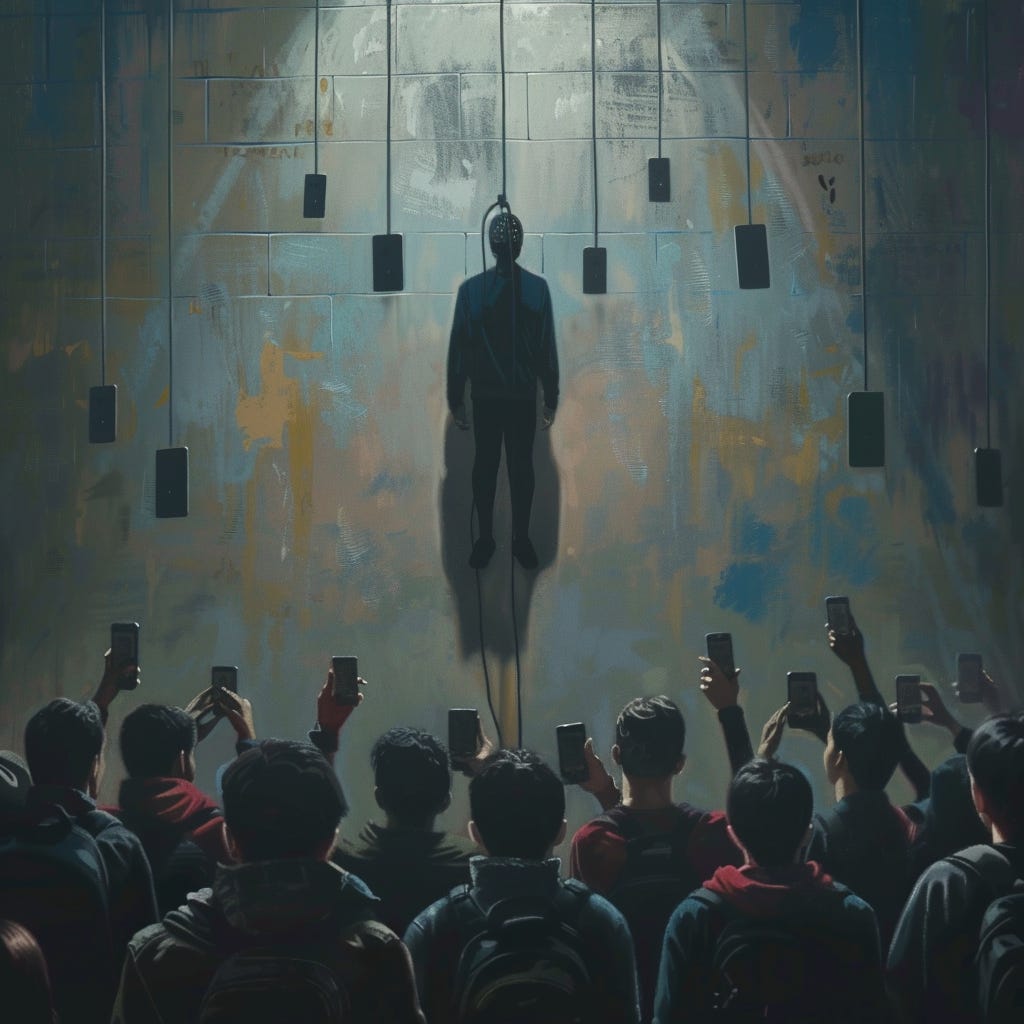More than five years after Jeffrey Epstein was found dead in a Manhattan jail cell under circumstances so suspicious they border on absurdist satire, the thread continues to unravel—and the fray is exposing bipartisan bloodstains. Most recently, a seemingly unguarded moment from former Florida Attorney General Pam Bondi breathed fresh life into a saga that many powerful interests would rather see buried.
Pam Bondi’s April 28th off-the-cuff admission, caught on hidden camera and later confirmed in a May 7th public statement, revealed what millions have suspected but few in government have dared to articulate: that the Epstein files include “tens of thousands of videos,” many of which depict acts so depraved they are unfit for publication. In Bondi’s words, the FBI is sitting on evidence that implicates individuals in the sexual abuse of minors—evidence that should have cracked open the most explosive investigation in modern American history. Instead, the public is offered only drips from the faucet while a fire hydrant remains sealed by institutional hands.
This episode raises urgent and uncomfortable questions: If Epstein was silenced in 2019 and his closest accomplice, Ghislaine Maxwell, was arrested one year later, why has there been no meaningful cascade of accountability? Why did the political establishment avoid implicating Trump in the scandal, despite his well-documented association with Epstein? And perhaps most striking: why, after all this time, is the most damning evidence still being teased rather than released?
To grasp what may be happening behind the curtain, we must revisit the timeline with some care. Epstein was arrested in July 2019. One month later, he was found dead in his jail cell. The coroner ruled the death a suicide, though forensic pathologist Dr. Michael Baden contradicted that finding, citing injuries more consistent with strangulation. The guards assigned to monitor Epstein reportedly fell asleep, the cameras malfunctioned, and he was inexplicably removed from suicide watch. A more brazen act of state-sanctioned incompetence—or worse—is hard to imagine.
Maxwell, Epstein’s close confidante and alleged madam, was arrested in July 2020, over a year after Epstein’s death. She was ultimately convicted on five of six counts relating to sex trafficking and the grooming of minors. Her silence, notably, has been deafening. No major names have been dragged down in her wake. No significant prosecutions have followed. Despite the explosive nature of the allegations and the presence of credible victim testimony, her trial concluded with the elite class unscathed.
Then comes Bondi. A staunch Trump ally and former impeachment defense team member, she is not easily dismissed as a partisan operative. Her accidental leak and subsequent statement suggest she may have strayed from the official script. The fact that she repeated to the public what she told a civilian days earlier raises the possibility that she was attempting to get ahead of the narrative before the hidden footage surfaced. Whether it was intentional or coerced, her statement confirms what many feared: the Epstein operation wasn’t merely a grotesque sex ring; it was a surveillance and blackmail machine, and its archives could implicate some of the most powerful individuals on Earth.
So why haven’t those individuals been prosecuted?
The simplest answer may also be the most damning: because they can’t be. The breadth of complicity is so vast, so institutionally entangled, that exposing one guilty party would unravel a tapestry implicating intelligence agencies, politicians across party lines, perhaps judges & foreign powers, and billion-dollar donors. In such a scenario, silence becomes a defense mechanism not just for individuals but for entire systems of power.
It is no accident that prominent figures like Bill Clinton, Prince Andrew, and yes, even Donald Trump appear in Epstein’s social orbit. Trump, however, provides a unique case. While he socialized with Epstein in the 1990s, multiple sources—including flight logs and witnesses—suggest he distanced himself from Epstein early on. One reported incident involving Epstein’s inappropriate behavior toward a Mar-a-Lago member’s teenage daughter allegedly prompted Trump to ban Epstein from the property. If true, it suggests Trump may have smelled the rot before the rest of the political class even acknowledged its stench.
But then why didn’t Trump use Epstein as a cudgel during his presidency? Why did neither he nor the DOJ under his administration bring the full weight of justice upon those connected to Epstein’s operation?
There are several speculative scenarios worth considering regarding Trump’s potential culpability:
First, Trump may have known something disturbing about Epstein and chose not to act—perhaps to protect Mar-a-Lago, himself, or others. His decision to ban Epstein from his club, while commendable on the surface, may have been more about damage control than moral outrage.
Second, Trump may have benefited politically or strategically from the blackmail material Epstein reportedly compiled. If Trump had access to knowledge of who was being recorded and with whom, that leverage could explain both his silence on the matter and his ability to avoid being targeted by those same circles.
Third, it’s plausible that Maxwell’s post-arrest silence was the result of a behind-the-scenes deal, possibly negotiated with a DOJ under Trump’s direction. Maxwell later said she was “touched” by Trump’s public wish that she "be well.” This comment, seemingly innocuous, may have held deeper meaning within that closed circle.
Finally, Trump’s long-term immersion in elite circles could indicate that he was, at the very least, a participant in the ecosystem Epstein operated within—even if he did not partake in the same crimes. His failure to fully weaponize the Epstein case against political opponents like the Clintons could be interpreted as strategic silence: knowing that an all-out war on Epstein's network could detonate both sides of the aisle.
If we view the The Pam Bondi episode through this lens her leak may have been a cry for help, a slip of conscience, or a carefully calibrated signal to those who still have the capacity to act. Her critics will say she confirmed nothing new. But in intelligence and politics, confirmation is everything. Her words now appear in the Congressional Record, the court of public opinion, and the media sphere. That makes them real, and that makes them dangerous.
Moreover, the timing of Bondi’s revelation—ahead of a volatile election cycle, amid surging populist backlash against elite impunity, and following continued revelations about child exploitation networks in corporate and governmental spaces—is crucial. The establishment may be preparing to sacrifice peripheral players in a controlled-disclosure campaign. As long as it avoids implicating the core, they can appear transparent without suffering consequences.
Therein lies the brilliance and tragedy of the Epstein affair: it is the perfect scandal for the modern world—true, grotesque, and simultaneously unspeakable. The media offers it in doses, like poison diluted in a cocktail of celebrity gossip and partisan distraction. The public, fatigued and disillusioned, turns away. And the perpetrators, cloaked in influence and power, remain unnamed.
So what should be done?
Pam Bondi’s statements must not be treated as gossip. They are testimonies of institutional rot. They demand subpoena power, public hearings, and full transparency. The DOJ should be compelled to release the videos under strict protections. Maxwell should be re-questioned. And every name on every flight log and transaction list should be subject to public scrutiny.
But don’t hold your breath. Because if there's one thing the Epstein story teaches us, it’s this: truth may be radioactive, but power has lead-lined walls.
Until the public demands disclosure not as spectators but as jurors, until politicians are more afraid of their constituents than their funders, the Epstein archive will remain the most guarded vault in the American political cathedral.
And Pam Bondi’s voice will linger not as an outburst, but as a warning.







